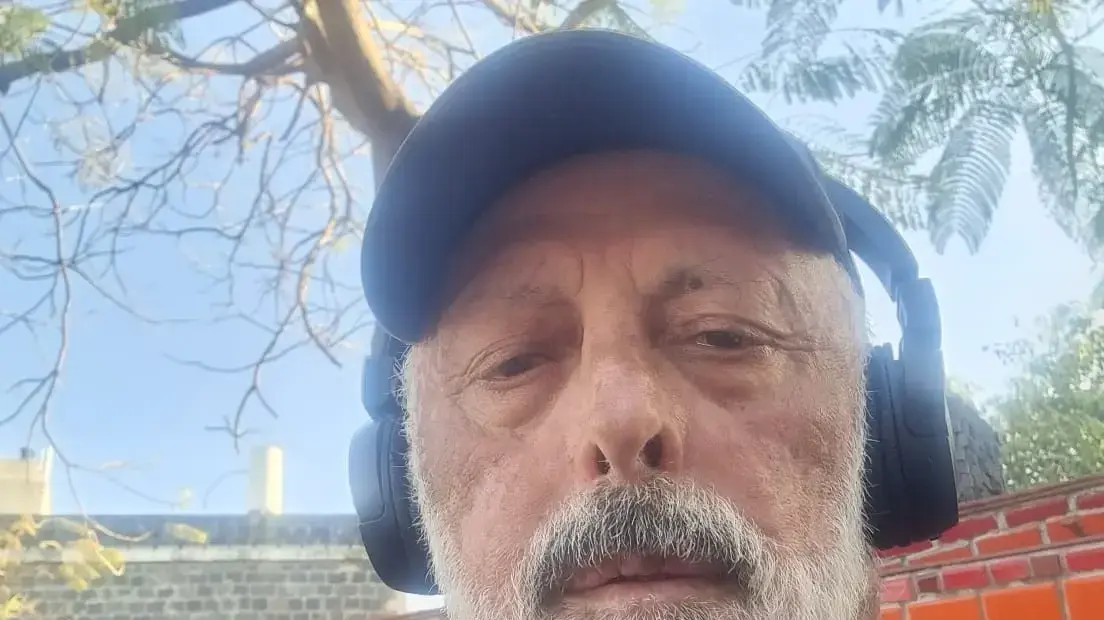Hezbollah fired an anti-tank missile at a house in Moshav Avivim/documentation on social networks according to Section 27 A of the Copyright Law
Above the ridge that overlooks us lies the Shiite village of Marun al-Ras.
We, the residents of Moshav Avivim, are on the other side, about hundreds of meters separating us.
In 1963, 53 immigrant families from North Africa, from the High Atlas Mountains arrived at the border line after two settlement attempts by immigrants from Romania and Hungary failed and the settlers abandoned the settlement.
The third ascent to Avivim, my family, which consisted of ten children and a pair of parents, was of an advanced age.
I, 11-year-old Eliezer, was the third child in the Beaton family and seven more brothers and sisters followed behind me.
The conditions of adaptation were disgraceful, with very little food and no electricity.
The houses had a faltering generator that would function for a few hours.
Inside the houses there was no water in the faucets, and in the garden there was a faucet that shed a tear along with the tear of sorrow of a mother, a housewife who had to go out to the faucet every moment.
In the yard there was a "ball-shooting" toilet inside a tin warehouse to which we went in the rain and the intense northern cold.
These were extremely difficult winters and the heating was done with the help of wood brought on the parents' backs and sooty kerosene stoves that made it difficult to breathe and more than once caused suffocation.
For all the articles in the project Losing the North
We are only good for the country as guard dogs on the fence.
Eliezer Biton/Courtesy of those photographed
The session took place in extreme solitude and complete isolation.
There was a school in the seat in a dilapidated and musty building and we studied there densely.
A nursery school and a kindergarten were not in the seat.
However, there was a consumer with few basic products such as milk and bread that were sold under the allowance.
The small synagogue was full to the brim, during the three daily prayers the worshipers crowded onto wooden benches or sat down on the cold floor.
There was no clinic in the settlement and once a week a family doctor from the neighboring kibbutz - Sasa would come voluntarily.
Father barely supports a family of 12 people.
When Menachem Begin came to power in 1977, we felt that a change had taken place regarding us as a significant element in border security and the settlement of the Galilee.
The economic situation also began to improve at the time.
In the souls of Avivim residents there is a great wound that accompanies me and others to this day - the attack on the Avivim children's bus in May 1970. That day an Aged bus carrying more than 40 children to school was bombed by Ahmed Jibril terrorists.
Nine children and three adults were murdered in cold blood in the attack.
Among the dead were the two Shali brothers - 9 years old and 7 years old. In addition, my uncle was also killed and left behind three orphans and two more of my cousins.
The attack caught the Northern Command and the Israeli government by complete surprise, similar to the surprise on October 7 in the Gaza Envelope.
Residents of Avivim did not know their souls - almost everyone among the 53 family homes lost someone, or one of the members of the family was seriously injured.
An offer not to be missed
Advance to the next generation of Tami4 water bars: smaller, smarter
To the full article
Losing the North/Ruben Castro
The wound was too deep to treat and some residents of the moshav simply ran away as long as they could.
Others waited for the end of the heavy mourning and swore over the fresh graves of the murdered that they would never abandon them.
My parents swore this oath.
In addition, once a year a joint memorial is held in the moshav square and from there we continue to a crumbling monument at the site of the attack near Baram, and then to the grave plot in the Safed cemetery.
Who knows if this year we will be able to hold the memorial at the place of the attack?
This is a very painful story of a settlement located on the border of Lebanon.
After the attack, they did not treat me and many others who were mentally damaged and to this day walk around with the feeling that we were abandoned by the government and the IDF on that damned Friday morning on May 22, 1970. Unfortunately, as one who grew up on the knees of neglect and continuous neglect until the moment of writing these words, I can tell about the hardships of life And a constant security risk, due to the Israeli governments abandoning and neglecting the immigrants who came to the Galilee from the Atlas Mountains in Morocco. If we were of Ashkenazi origin, our situation in all parameters would be vastly different from end to end.
We are only good for the country as guard dogs on the fence.
It was in the past and continues until the moment I write these words.
Even in a calm time, we did not know what personal security was, and the knife was always at our necks.
In the many positions I held in management and organization, I did everything I could to change the situation, but the establishment always put sticks in the paddle wheels that are already rusting and crumbling.
More on the same topic:
Losing the north
springs

